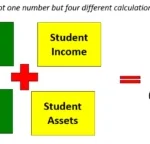from Ever thought about earning college credits before even graduating high school? That’s exactly what dual enrollment offers. It’s a fantastic opportunity for motivated high schoolers to challenge themselves, save time and money, and get a real taste of college life early on.
Whether you’re a student looking to fast-track your education or a parent helping your teen plan ahead, this guide will help you understand how dual enrollment works—and whether it’s the right fit.
What Is Dual Enrollment?

Dual enrollment allows high school students to take real college courses usually through a local college, university, or even online and earn credits that count toward both their high school diploma and a future college degree.
These classes can happen on the high school campus, on a college campus, or through online platforms, depending on the program.
Why Consider Dual Enrollment?
1. Save Time & Tuition Fees
College can be expensive, but dual enrollment offers a way to lighten the financial load. Some programs are free or offered at a lower cost, and by earning credits early, you might even finish college ahead of schedule.
2. Experience College-Level Learning Early
You can better adapt to the academic demands of college by enrolling in college classes throughout your high school years. You’ll learn how to manage deadlines, understand complex material, and work more independently—all valuable skills for future success.
3. Stand Out on College Applications
Students who go above and beyond are sought after by admissions officers. Enrolling in college courses while still in high school demonstrates your commitment, aptitude, and willingness to tackle challenging material.
4. Explore Career Paths and Interests
Are you unsure of your college major? Dual enrollment lets you try out subjects like business, psychology, or coding—without waiting until freshman year.
❗ What to Keep in Mind
Dual enrollment isn’t for everyone. Before registering, keep the following points in mind:
1. Time Management is Crucial
It takes discipline to juggle high school studies and extracurricular activities with college-level coursework. You’ll need to stay organized and focused to succeed.
2. Grades Count—Twice
Your performance in dual enrollment classes affects both your high school and college GPAs. If you’re not ready to commit, it might impact your academic record.
3. Credit Transfer Isn’t Guaranteed
Not all colleges accept dual enrollment credits, especially out-of-state or private institutions. Before enrolling, check with the colleges you’re considering to make sure the credits will count.
4. Different Social Dynamics
You might find yourself in classes with older students. Although it can be frightening, this is also an opportunity to develop and adjust to new surroundings.
How to Get Started
Ready to give dual enrollment a shot? Here’s how to begin:
- Talk to Your School Counselor—They’ll explain what’s available and help you meet any requirements.
- Find Partner Programs—Look into nearby colleges or online programs that work with your school.
- Pick the Right Courses—Choose subjects that align with your interests or future college goals.
- Understand the Commitment—Check the GPA requirements, course expectations, and scheduling.
- Make a Plan—Think about how these courses fit into your big picture, both academically and personally.
Is Dual Enrollment Right for You?
- Dual enrollment may be a viable option for you if you:
- Are academically driven and enjoy learning
- Want to save money on college
- Are curious about college subjects and careers
- Feel comfortable taking on more responsibility
Final Thoughts
Dual enrollment can be a game-changer for students who want to take control of their education early. From saving money to gaining college experience, the benefits are real—but it’s important to make sure it aligns with your goals and readiness.
If you’re up for the challenge, dual enrollment could be your first major step toward college success.
Related Reads:
- [AP vs. Dual Enrollment: Which One Should You Choose?]
- [How High Schoolers Can Start Preparing for College Now]
- [Smart Study Tips for Busy Teenagers]






